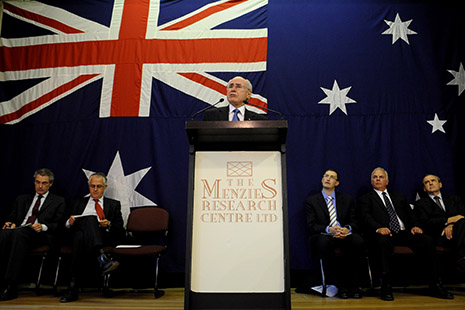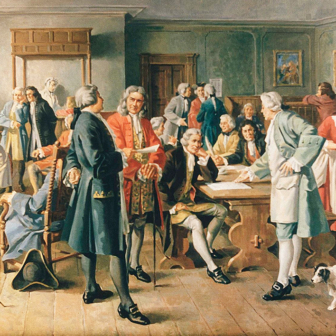IT IS NEARLY fifty years since Thomas S. Kuhn published a landmark essay arguing that scientific progress came from revolutionary shifts in the minds of scientists whose work had resulted in intellectual crises for accepted scientific theories. Kuhn’s The Structure of Scientific Revolutions provides an intriguing framework for the analysis of John Howard’s recent critique of Kevin Rudd’s attack on fundamentalist free-market economic orthodoxy.
The noted American philosopher/historian of science supported his argument by referring to the revolutionary shifts from Ptolemaic to Copernican astronomy and from Newtonian physics to Einstein’s physics. The shifts followed crises caused by the accumulation of anomalous outcomes in experiments and observations by scientists working with Ptolemaic and Newtonian theories.
Similar sorts of crises are apparent in the neoclassical economic science defended by John Howard. But there has not yet been the breakthrough needed to bring a revolutionary shift to what Kuhn vaguely called a new “paradigm.”
For all its richness, and despite its capacity for guiding economic policy, the economic theory defended so vigorously by Howard is beset by anomalies. It has limited predictive power; it is based on an egoistic short-term utility-maximising theory of human nature; its assumptions about the economy are remote from the reality of the economy. And, most devastating, an extreme interpretation of it has, as Rudd argued, contributed to the current economic crisis. Yet economists remain in thrall to the elegant self-correcting free-market equilibrium theory, appealing, as Howard does, to its durability and successes while minimising the anomalies.
While Howard’s response to Rudd was inevitably political rather than theoretical, it fitted Kuhn’s description of how scientists respond to crises in a theory. Rather than abandon a theory that has served them well, scientists will, Kuhn observed, “devise numerous articulations and ad hoc modifications of their theory to eliminate any apparent conflict.” This is perhaps intellectually understandable.
So Howard declared Liberals should always retain their strong belief in the fundamental force of the market and rejected Rudd’s proposal for extensive re-regulation because of the success of market theory in the past thirty years.
But Rudd does not deny the fundamental importance of the market or that what he pejoratively calls neoliberalism has brought prosperity to many. He asserts only that they need greater external oversight. Kuhn similarly acknowledged the durability and the immense value of what was discovered within the Ptolemaic and Newtonian traditions. The problems for neoclassical economics are the emerging anomalies and what they now require of economic scientists working at normal puzzle-solving science.
“[N]ormal science ultimately leads only to the recognition of anomalies and to crisis,” Kuhn wrote. “And these are terminated, not by deliberation and interpretation, but by a relatively sudden and unstructured event like the gestalt switch. Scientists then often speak of the ‘scales falling from the eyes’ or of the ‘lightning flash’ that ‘inundates’ a previously obscure puzzle, enabling its components to be seen in a new way that for the first time permits its solution.”
Howard is not ready to throw the gestalt switch. He is clinging to the orthodoxy-in-crisis on the basis of its past record and interpreting Rudd’s prescription as “unsustainable” and designed to “score a base political point.” That may well be true; but it is equally true of Howard’s response. It is a tragedy of the Australian public policy debate that participants prefer to shoot at each other from the trenches of unshakeable certainty rather than to examine critically the continuing relevance of their articles of faith.
John Howard perhaps can be forgiven this tendency. He is defending his long political and governmental heritage, which is under fire from Rudd. But Howard’s defence appears, less forgivably, to maintain that the principal concerns of the government should be to preserve jobs and to ensure that government spending should be directed “overwhelmingly” to reducing the costs to firms of retaining and hiring employees.
These are contentious claims. First, it is at least arguable that the principal concern of the government is to secure and to defend the realm before it seeks to preserve jobs. Second, retaining or hiring of labour should on Howard’s theory be a function of demand for goods and services. To urge government spending to encourage retaining or hiring staff is to concede a theoretical anomaly in the self-correcting neoclassical economic model.
This might not amount to a Kuhnian crisis for Howard, but again Kuhn’s words illuminate the issue: “All crises begin with the blurring of a paradigm and the consequent loosening of the rules for normal research.” Faith in past success is not enough to secure the future of a theory. •




